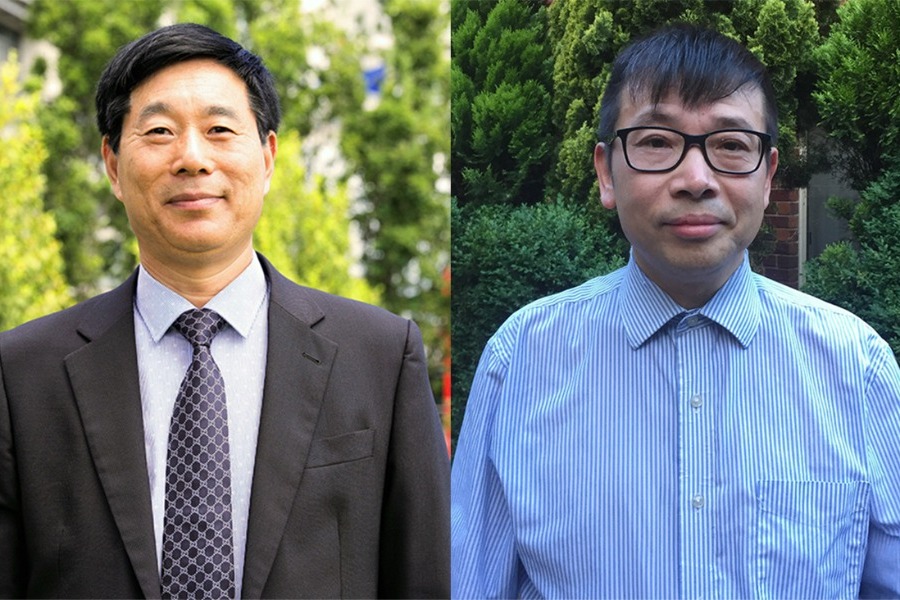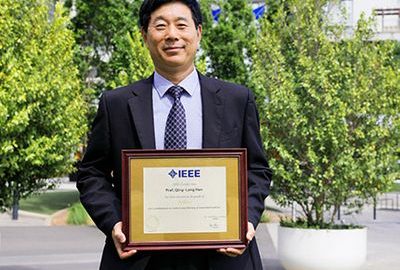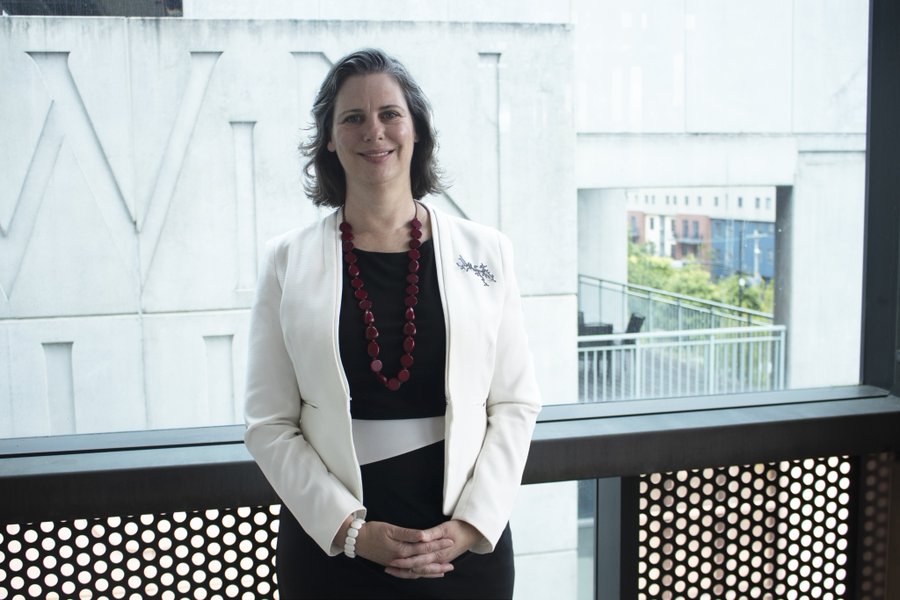Swinburne researchers making an impact

At this time of year researchers eagerly await to see who will be celebrated for their global influence.
Researchers can measure their impact in many ways. One of these is to publish excellent research that is used by other researchers. The second is to secure funding to pursue their research.
DIF News features stories of Victorian researchers making an impact in STEM-related fields. This time we shine a light on Swinburne with a raft of awards and grants that demonstrate how people and technology working together can build a better world in action through the work of these esteemed researchers.
Swinburne was recently named the lead Australian research institution in Automation & Control Theory, Computing Systems and Nonlinear Science by The Australian’s 2023 Research magazine. The esteemed annual list also recognised Distinguished Professor Qing-long Han as the top researcher in Engineering and Computer Science and Associate Professor Tonghua Zhang [pictured above] as the Australian leader in Nonlinear Science which is on top of their recognition by Clarivate which is indeed a reason to celebrate.
“Swinburne has provided me with outstanding support and has established an extremely high-profile research team, allowing me to conduct high-quality research to make impactful contributions to the future of engineering,”
Professor Han, School of Software and Electrical Engineering
Highly Cited Researchers 2022
If you’ve ever wondered how the top researchers are selected, well in the case of Clarivate, they draw its data from the published papers that rank in the top one per cent by citations for field and publication year in the Web of Science citation index. The 2022 Highly Cited Researchers list includes the Swinburne researchers recognised below. Of eight of the researchers making the list in 2022, five were from computer science, engineering and mathematics. Clarivate compiles those in the top one per cent by citations for their field during the past decade.
Professor Jinjun Chen is Deputy Director of the Swinburne Data Science Research Institute. His research spans cloud computing, distributed systems and algorithms, mobile computing, hardware security, system and network security, data security and protection, and software and application security.
Dr Xiaohua (Jamie) Ge is a computer engineer with expertise in networked control systems, multi-agent systems and cyber-physical systems. In a practical sense, his research is applied to intelligent ground/surface/underwater vehicles, electric vehicles, connected automated vehicles and intelligent transportation systems.
Distinguished Professor Qing-Long Han is Swinburne’s Pro Vice-Chancellor (Research Quality), but he still makes time for his own research. He is an internationally recognised leader in Control Theory and Control Engineering. Impressively, he is cited in the top one per cent for both computer science and engineering in 2022.
Dr Xianming Zhang has published over 100 fully-referred journal articles and conference papers, including – most recently – on automated and electric vehicles. Dr Zhang is also cited in two categories: computer science and engineering.
Associate Professor Tonghua Zhang is a mathematician interested in differential equations, nonlinear dynamical systems and mathematical biology. He has applied his expertise to topics varying from supply chains to the transmission model of a Zika virus.
Swinburne researchers share in $221 million for ARC Discovery Projects
More than $221 million of funding for 2023 Australian Research Council (ARC) Discovery Projects has been announced. The scheme provides funding of between $30,000 and $500,000 each year for up to five years. Six Swinburne projects were among the individuals and research teams supported to innovate and build new knowledge. Three of the projects contribute to the development of the digital economy examining last-mile connectivity with the internet of things, cybersecurity in the cloud and technology in aged care.
Australia’s 5G transition to get a boost
Almost half a million dollars will go to the world's first attempt to systematically tackle the challenges of enabling cost-effective last-mile service of 5G mobile edge computing. Led by software engineering and cloud computing expert Associate Professor Qiang He, the project will drive Australia's 5G transition and innovations and promote national post-COVID economic recovery. We’ll see an improvement to real-time mobile and Internet of Things applications, such as telehealth, remote learning/working, industry 4.0, and ensure Australia’s pioneering position in the global 5G research.
Australian data to be made safer on the cloud
Data auditing is a promising way to prevent information being modified or lost on the cloud. It could give us timely warnings, meaning we could take precautions and avoid potential data loss. But current auditing approaches are lacking in efficiency and security. Swinburne’s Deputy Director of the Swinburne Data Science Research Institute, Professor Jinjun Chen, will undertake innovative research into the challenges of data auditing and aim to establish solutions for enabling efficient and secure data integrity auditing on the cloud. The project will help safeguard Australians in a fast-growing cyber connected world.
The future of high-tech aged care
Technology isn’t just for the young. Older adults would benefit from more and better technology in aged care. Lead of the Swinburne Living Lab, Professor Sonja Pedell, is shepherding a project on meaningful experiences and tech skill development of people in aged care. It’s important to introduce technologies that support agency and confidence – instead of making older Australians frustrated, confused or dependent on the help of others. This project takes the interests, abilities and everyday experiences of people in aged care and uses their wants and needs to inform how to boost technology uptake in residential settings.
Originally published by Swinburne University:








